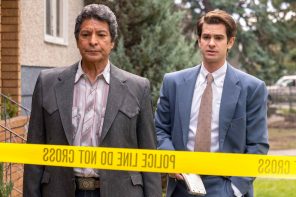Last Sunday night, after putting her four kids to bed, Melanie S. sat down at her computer to churn out her weekly contribution to a popular Mormon group blog.
Her post was scheduled for Valentine’s Day, and as she researched the legendary origins of the holiday—named for St. Valentine, who was jailed for defying a Roman imperial edict against performing marriages—Melanie could not help but recall the LDS Church’s efforts to ban same-sex marriage.
In 2008, when LDS Church leaders asked members to support the Proposition 8 campaign in California, Melanie did as so many other observant Mormons: she searched her heart and mind and prayed earnestly for guidance. Then, she received an answer that she should not support the proposed ban on same-sex marriage.
On the internet, she found Mormons for Marriage, a website founded by Laura Compton, a California Mormon and mother of two, to offer community to LDS people who respectfully opposed their church’s stance on Proposition 8.
When Mormons for Marriage started posting videos of Mormons sharing their thoughts on the anti-same-sex marriage campaign, Melanie felt compelled to contribute her own. During the 2000 Proposition 22 campaign in California, she had remained silent but feared that her silence signalled her consent. This time, after prayer, she felt directed to do it differently.
So she sat down in a friend’s living room and held up for the camera a picture her three-year-old son had colored at nursery on Sunday bearing the caption: “I will love others.” “Pictures like these are the reasons I go to church,” she said. “So why is this church that has taught me so much about my Savior asking its members for their time and their money and their votes to deny other people marriage?”
Her two-minute video made the website, then the local news in Salt Lake City, and within days an official at LDS Church headquarters placed a concerned phone call to Melanie S.’s local clergy.
Three times her bishop met with Melanie to discuss the video. Because she had affiliated with “Mormons for Marriage,” he questioned whether or not Melanie and her husband should be allowed to keep their temple recommends—certificates that allow the most worthy and devoted Mormons to participate in the faith’s sacred temple rites.
Nor was he all that comfortable with Melanie teaching Sunday School, even though she assured him she had no interest in making waves about the Proposition 8 debate—or any other controversial issue—in the class she taught each week.
Facing the prospect of being denied access to the temple and resigning her Sunday School position, she decided to take the video down.
But all that changed last Sunday. As she sat at her computer, Melanie S. realized that her decision to take her video down had not strengthened but rather bruised her relationship to her faith. In yielding to pressure from local leaders she had sacrificed something essential to her Mormonism—something, in fact, essential to faith itself: individual conscience and the courage to act on it.
She decided to put the video back up for Valentine’s Day. (See it here.)
Melanie’s story reveals the uncomfortable reality that the LDS Church has a track record of monitoring the political activities of members who write and speak in public. Mormon liberals who go public on sensitive issues like marriage equality or feminism do so bearing in mind that someone at LDS Church headquarters may bring their activities to the attention of local leaders who are empowered to take disciplinary action.
It’s a touchy subject to write about. I have to admit it’s always puzzled me that a global church of 14 million members bothers itself with the doings of a minority of liberals in the United States. And I can only imagine how this all looks to people not of the Mormon faith.
But according to Melanie, the story of the circumstances that led her to take the video down is not as important as the story of why she put it back up.
“The real story for me,” she explained, “is what does a good Mormon do when you’ve prayed and you’ve gotten answers as real and strong as the answers other people have gotten, but they lead you in a different direction? It’s easy for people to say, ‘You can’t think that; you follow the prophet.’ But do you have to choose between the church you love and the inspiration you feel you are getting from an honest place?”
Is there a place for individual conscience in contemporary Mormonism? How will a global church that stresses uniformity respond to growing political diversity within its membership? Her video—which has now been viewed more than 250,000 times—has certainly restarted that discussion.




